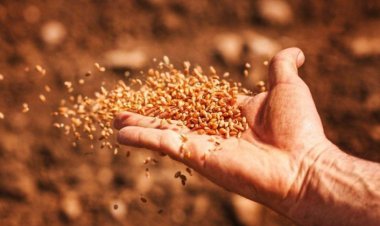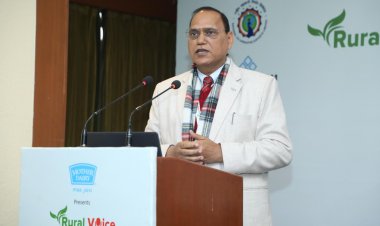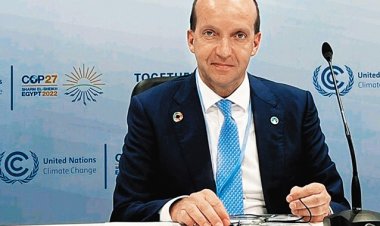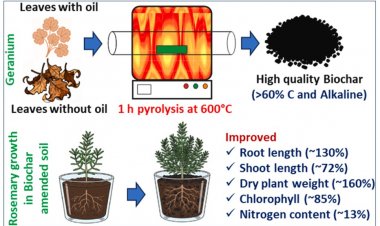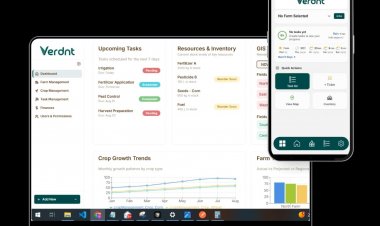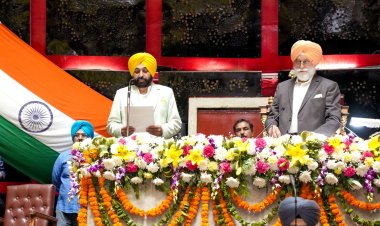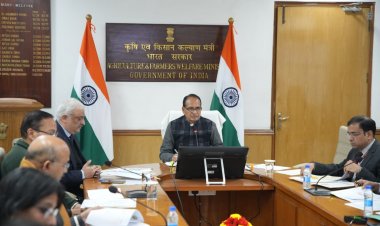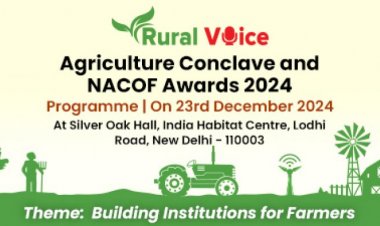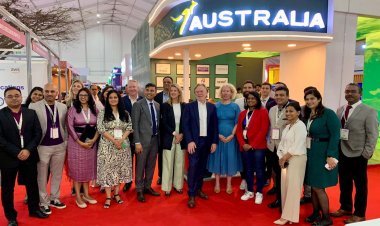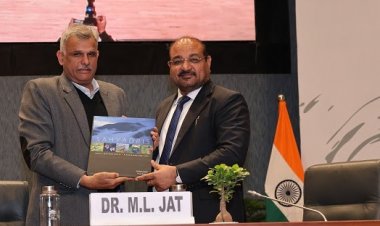Obituary: Dr Tajamul Haque: A Great Champion of Poor and Downtrodden
Dr Haque was among very few professionals, who was equally popular among students, academicians, bureaucrats, politicians, media, farmers and his friends. His other personal qualities include simplicity, humility, integrity and courage. He was characterised as a distinguished researcher, outstanding teacher, generous for poor, sympathiser for farmers, wonderful human being and lovely friend. His departure to heavenly abode is terrible loss to me personally as well as entire agriculture fraternity.
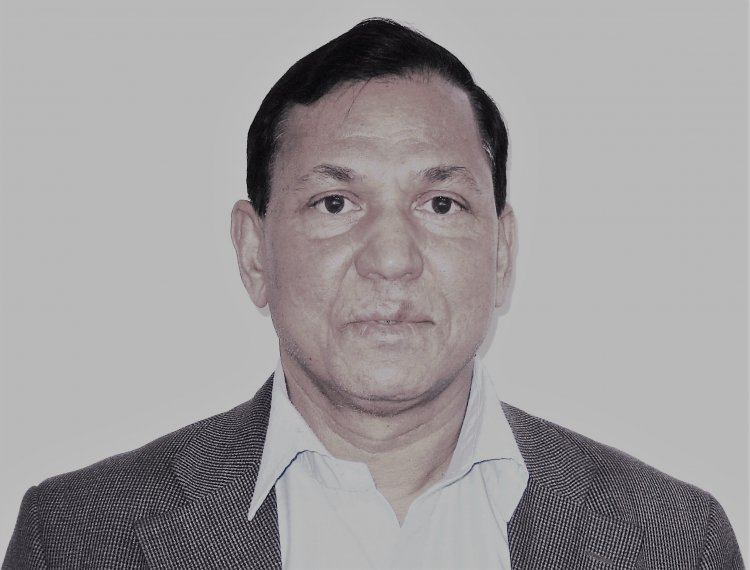
It was unbelievable that Dr Tajamul Haque left for heavenly abode on 2nd May 2021 due to Covid 19. It is very sad that a self-disciplined person also came in the grip of such a devastating disease. It was a very disturbing and heart-breaking news. I just went to memory lanes to remember the wonderful time spent by both of us. I first met Dr Haque when both of us joined Indian Agricultural Research Institute (IARI) in January 1977. Both of us were posted as Scientist (Agricultural Economics) at the Division of Agricultural Economics of IARI through newly created All India Agricultural Research Service (ARS) by the Indian Council of Agricultural Research (ICAR). He later became the ICAR National Fellow at the National Centre for Agricultural Economics and Policy Research, and the Director at the National Institute of Rural Development (NIRD), Hyderabad. He then moved from research to policy making; first as the Member of the Commission for Agricultural Costs and Prices (CACP) and later its Chairman. After completing his tenure with CACP, he took over as the Director of the Council of Social Development (CSD). Later he was Distinguished Faculty at CSD and continued the position till his death. He also served many professional societies in various capacities. He was 2020 Conference President of the Agricultural Economics Research Association. Dr Haque had his doctoral degree from Patna University and post-doctoral training from Iowa State University, Ames, U.S.A. He was a self-made personality. He come from a small and remote village in Bihar, and finally attained the top policy formulating body, speaks his passion, dedication and commitment towards the profession.
Dr Haque was an outstanding researcher. His contribution is well recognized at national and international level. He established himself as a well-acclaimed agricultural economist with specialisation in the area of agricultural development and policy. He worked in different research areas, which largely focussed on rural development, smallholder agriculture, agrarian reforms, and land tenancy. He has authored several books, including, Empowerment of Rural Women in Developing Countries, Socio-Economic Impact Assessment of Bt. Cotton in India, Land Policies for Inclusive Growth, Agrarian Reforms and Institutional Changes in India, Impact of Land Reforms on Agriculture and Rural Development, Transfer of Technology to Small Farmers and Impact of Tenancy Reform on Agricultural Productivity and Socio-economic Status of Tenants and Sustainability of Small Holder Agriculture. Most of his writings used to solve the misery of poor and downtrodden, especially landless labour, and small and marginal farmers. I also co-authored few papers with him. Our latest papers in 2018, published in Economic and Political Weekly were on ‘Agricultural Transformation of Aspirational Districts in India’ and ‘Price Deficiency Payments and Minimum Support Prices’.
Dr Haque was also known as a ‘land expert’ due to his seminal contribution on land tenurial systems in India and other countries. He was the National Coordinator and Member, Technical Advisory Group of the Land Governance Assessment Framework (LGAF), implemented by the World Bank in collaboration with the Department of Land Resources, Government of India. He was also appointed as the Honorary Chairperson of the Special Cell on Land Policy in the NITI Aayog. He was instrumental in formulating the Model Agricultural Land Leasing Act 2016. He was also Chairman of the Expert Appraisal Committee for ‘Environment Impact Assessment’ constituted by the Ministry of Environment, Forest and Climate Change’.
He has served as a senior consultant to several organisations such as the International Labour Organisation, Food and Agricultural Organisation, International Food Policy Research Institute, and the World Bank. He has also been associated with several expert committees of the Government of India, and the State Governments of Punjab and Andhra Pradesh. I also got opportunity to work with him in a three member Task Force constituted by the Government of Punjab on ‘Possible Ways to Agricultural Loan Waiver Scheme’. He always stressed how marginal and small farmers can be benefitted at the first instance.
He was a wonderful and effective teacher. He used to teach Macroeconomics and Economic Theory at IARI. He was among best teachers at the Institute. He was very popular among students, who used to always inspire and motivate them for excellence and social welfare. His students still remember him for his role in shaping their personality and career path.
I have numerous memories attached with Dr Haque. Both us shared one office room with two other colleagues at the Division of Agricultural Economics at IARI. I remember that the first thing both of us in the morning used to discuss the editorial in the Times of India for about an hour. We used to admire the writing skills of Shri Girilal Jain, the then Editor of the Times of India. Such interactions helped me to comprehend, analyse and articulate the topical issues of debate in India and abroad. These exchanges also helped me to sharpen my understanding in macroeconomics and economic development. In addition, he was instrumental in getting me addicted to read good books dealing with theories and models of economic development in different countries. He referred me several such books for discussion with him on pross-and-cons of different growth theories and developmental pathways. Interactions with him helped me immensely to connect microeconomic issues with macroeconomic perspectives in technology diffusion and agricultural transformation.
He was a firm believer in quality and perfection. I remember that when he was working on a book on ‘Agrarian Reform and Institutional Changes in India’, he revised the draft no less than 20 times. He used to write draft, correct and edit it, till not completely satisfied. He did several rounds of regression analysis for his thesis till the results were robust. He was an effective communicator. Very often, one finds him in media debates in different television channels on key issues related with agriculture sector.
Since both of us were bachelor during early days of our career, we used to spent several evenings either having fun in Connaught Place or attend evening lectures or panel discussions at the India International Centre. For me, these lectures and panel discussions by renowned personalities used to be very informative and illuminating. It happened only due to his affectionate company.
Dr Haque was among very few professionals, who was equally popular among students, academicians, bureaucrats, politicians, media, farmers and his friends. His other personal qualities include simplicity, humility, integrity and courage. He was characterised as a distinguished researcher, outstanding teacher, generous for poor, sympathiser for farmers, wonderful human being and lovely friend. His departure to heavenly abode is terrible loss to me personally as well as entire agriculture fraternity.
We shall miss him physically but he will always remain in our hearts.
(Dr. P K Joshi, Former Director-South Asia, International Food Policy Research Institute)
President, Agricultural Economics Research Association (AERA)
Secretary, National Academy of Agricultural Sciences (NAAS)
Honorary Director, Agro-Economic Research Centre-Delhi (AERC-D)
Policy Advisor: The World Bank, FAO of UN, Harvest Plus and ACIAR



 Join the RuralVoice whatsapp group
Join the RuralVoice whatsapp group

















